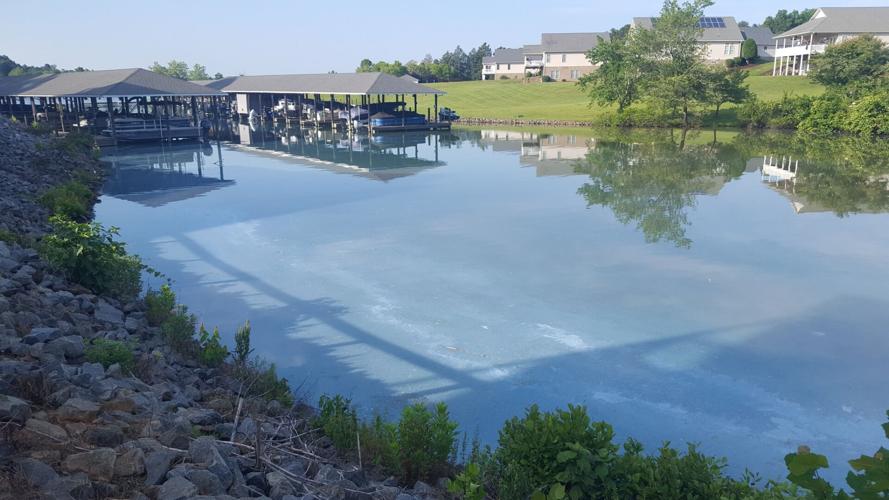The Virginia Department of Health has announced a change in how it will issue swim advisories due to harmful algal blooms, and a Smith Mountain Lake group is saying it may reduce protections for public health.
This summer, advisories will be issued based solely on the toxin levels of the harmful algal blooms. In previous years, advisories were issued when high levels of toxins were being produced by the algae or when the concentration, or cell count of the algae, exceeded 100,000 cells per milliliter.
“The toxin itself is where the risk is to the public,” said Danielle Schools with the VDH.
By focusing on toxin levels, Schools said the VDH will be able to more quickly provide information to the public. Advisories are sent out after samples of reported harmful algal blooms are collected and sent to a lab to be analyzed.
People are also reading…
“The switch to the toxin testing is more targeted, it’s designed to be more efficient and it’s designed to be more responsive to where the risk is with a quicker turnaround time,” Schools said. “We are trying to be more protective of public health because we know that toxin is where the risk is.”

This section of Smith Mountain Lake near the Lands End Subdivision on the Blackwater River arm had a large patch of bluish-green algae along the shoreline in early June 2023.
Harmful algal blooms or HABs are a type of rapidly growing algae, known as cyanobacteria, that is often blue-green in color. According to the Virginia Department of Health, the algae can produce toxins that can damage kidneys, liver, nervous system and brain. In extreme cases, the toxins can cause severe illness or death in humans or animals when ingested.
The VDH notes more than 400 samples from HAB investigations have been analyzed since 2020 across the state. In that time, almost one-fourth of the samples exceeded the cell count threshold and none exceeded the toxin level threshold.
The VDH collected samples from multiple algal blooms at Smith Mountain Lake in 2023, which led to a swim advisory for the lake’s Blackwater River arm that lasted most of the summer, causing major impact to recreation and to local businesses. At the time, those blooms only had high cell counts and were not producing toxins, which means there would not have been a swim advisory based on the recent changes by VDH.

The Virginia Department of Health issued a swim advisory for much of the Blackwater River arm of Smith Mountain Lake for much of the summer of 2023 due to harmful algal blooms.
The Smith Mountain Lake Association, which has been collecting data on HABs following their significant impact in 2023, has announced it opposes the changes in reporting by the VDH. They have stated the change in testing may not be as protective of human health.
“It’s critical that all available data is evaluated when it affects human health,” said Keri Green, SMLA Lake Quality Council chair. “We owe that to everyone who swims in Smith Mountain Lake and other inland waterways in Virginia.”
In a news release issued by the SMLA on Wednesday, the group stated that “no data exists that definitively points to when a HAB produces toxins. But exposure to elevated concentrations of cyanobacteria cells can trigger health concerns. By eliminating this important measure of analysis, users of the lake may not be protected from the potential health effects caused by contact with elevated levels of cyanobacteria, even when a bloom is not producing toxins. These include skin irritation, allergic reactions and gastrointestinal distress.”
Schools said that VDH maintains a dashboard on its website where there have been reported HABs. Alerts can be issued when HABs are discovered until testing is done to see whether it exceeds toxin levels.
HABs will also continue to be monitored by VDH, Schools said. If an algal bloom is found to not exceed toxin levels continues to grow, VDH can return to test it again to assure it hasn’t started to produce toxins.
While a swim advisory may not be issued for a portion of the lake where HABs have been discovered due to them not exceeding toxin levels, Schools said individuals should usually refrain from swimming in algal blooms to be safe.
“When it doubt, stay out,” Schools said.
The VDH has a list of on its website at . Some of those tips include showering before and after swimming, don’t swim in water that has a green film or is cloudier than usual and don’t swallow water you swim in.















